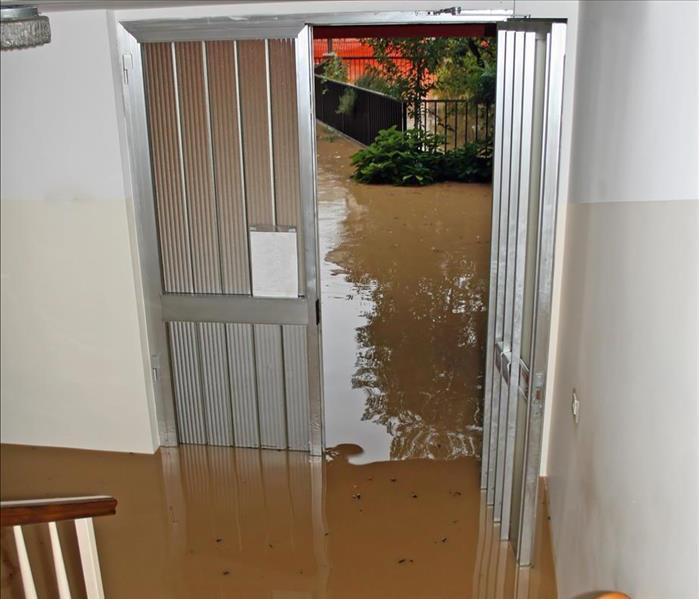Minimizing Flood Risk for Your Home
2/17/2020 (Permalink)
Water damage due to flooding is in the top three reasons for homeowners’ insurance claims. Many homeowners don’t realize how common it is to have a first-level or basement flood. This summary of flood risk and flood prevention may help you reduce your risk level.
Common Sources of Home Flooding
The following flood dangers are a few of the ways water can make its way into your home and cause damage:
- Internal sources such as broken pipes or leaking appliances
- Rivers or streams overflowing during severe storms
- Sump pumps failing
- Municipal failures, such as water main breaks and dam breaches
- Drainage malfunctions during severe storms
Whatever flood culprit threatens your home, it’s important to minimize your risk. Determining your home’s risk level is the first step.
Reducing Your Home Flood Risk
The best strategy for reducing your risk of a ground-level or basement flood is to arm yourself with information and preparation. A flood risk assessment for your home will tell you whether you should have flood insurance and will allow you to design a custom emergency preparedness plan. Your local flood remediation service or insurance agent can arrange a risk assessment for you.
If your property bears even a moderate risk for flooding, it’s prudent to purchase a flood insurance policy issued by the US Government. Your conventional homeowner’s policy will not cover home water damage unless the source of the flooded area was inside your home; if a water heater leak caused a basement flood in your Northeast Dallas, TX, home, your homeowner’s policy would likely cover you.
Based on your risk assessment, you can create a comprehensive flood prevention plan. In general, it’s a smart idea to schedule a walkthrough of your home with your family to identify emergency evacuation routes and discuss your plan. Signing up for local and national emergency notification services is also a good precaution.
A home flood risk assessment is your template for your emergency response plan. Creating and implementing the plan can mean the difference between a little water in the corner of your basement and extensive water damage.



 24/7 Emergency Service
24/7 Emergency Service
